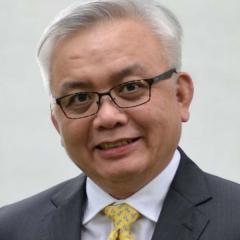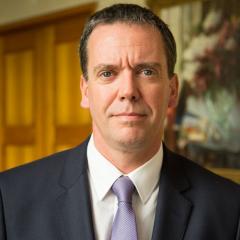Measuring UNESCO's Internet Universality Indicators and advancing privacy and data protection at a country level
Organised by UNESCO
Speakers (tentative line-up):
- Teki AKUETTEH FALCONER Data Protection Commission of Ghana
- Stephen Kai-Yi WONG, Privacy Commissioner for Personal Data, Hong Kong
- Mila ROMANOFF, Data Privacy and Data Protection Legal Specialist, UN Global Pulse
- Paul CHADWICK, Reader’s Editor of The Guardian, former Privacy Commissioner of the Australian State of Victoria
- Felipe HARBOE, Senator of Chile
Moderator: Ms Xianhong Hu
In the context of the 2018 International Conference of Data Protection and Privacy Commissioners and following its consultation at the 2017 ICDPPC conference, UNESCO will take the opportunity to present the final outcome of the Internet Universality Indicators framework (IUI), and to engage with the ICDPPC community in a discussion on how to measure Internet privacy policies at national level and harmonize the protection of both the right to privacy and the right of freedom of expression in the digital age.
The result of a two-year global multi-stakeholder consultation process, the Internet Universality Indicators contain above 260 quantitative, qualitative and institutional indicators, along with a list of sources and means of verification. These indicators are structured around UNESCO’s R.O.A.M principles (Human-rights-based, Open and Accessible Internet, governed by Multi-stakeholder participation), and are aimed at assisting governments and other stakeholders in the assessment of their national Internet environment and at informing the development of policies for the better protection of the rights to privacy and freedom of expression.
Under the understanding that privacy is a right that has been significantly affected by the development of the Internet (with a growing concern over the potential threats to privacy that are posed by it), the IUI framework compiles a whole set of indicators aimed at measuring privacy and data protection policies at a country level. These indicators will provide a way for stakeholders to assess national legal arrangements for privacy, data protection (related to the collection, analysis, use, storage, transfer and sharing of data) and surveillance, as well as individuals’ rights concerning their own identities, and the relationship between the State and business holders of commercial and personal datasets.
This side event will be a unique opportunity for the ICDPPC community and UNESCO to reflect and exchange on how to use the Internet Universality Indicators as a comprehensive tool, and specifically, on how the IUI framework enables stakeholders to assess the landscape of privacy and data protection at a country level. In the context of this discussion, the challenge posed by the conflict and interplay between the right to privacy and the right to FOE in the digital age will also be addressed, with a focus on the issues of the management and control of personal data and the access (to) and the disclosure and imparting (of) information online.
The event will be structured as an interactive session, which will begin with a presentation on the privacy and data protection indicators included in the IUI framework, and which will then give way to an open discussion around the following key questions:
- How to measure privacy policy at a country level?
- How could we effectively protect the right to privacy without undermining freedom of expression?
- How could governments be encouraged to undertake national assessments on Internet Universality?
- What are the main points of intersection between the right to privacy and freedom of expression?
- Why is the right to privacy considered as an essential requirement for the realization of the right to FOE? Or: How do infringements on the right to privacy affect FOE?
- How to balance privacy (and FOE) and security?
The Internet Universality Indicators have been developed through a process of desk research and of global multi-stakeholder consultation online and offline, undertaken by UNESCO with the support of a consortium led by the Association for Progressive Communications (APC), including ict Development Associates, LIRNEasia and Research ICT Africa.
The draft indicators are available on the IUI project’s website, and will be submitted for validation by the UNESCO IPDC (International Program for Development of Communication) council meeting in late November, 2018: https://en.unesco.org/internetuniversality.
This UNESCO side event will take place in UN premise and is open to public. Those who are interested to attend this event should register their participation via email to the UNESCO contact person: Ms Macarena Rivera Lam (m.rivera-lam@unesco.org), at the latest on Friday, 19 October 2018


